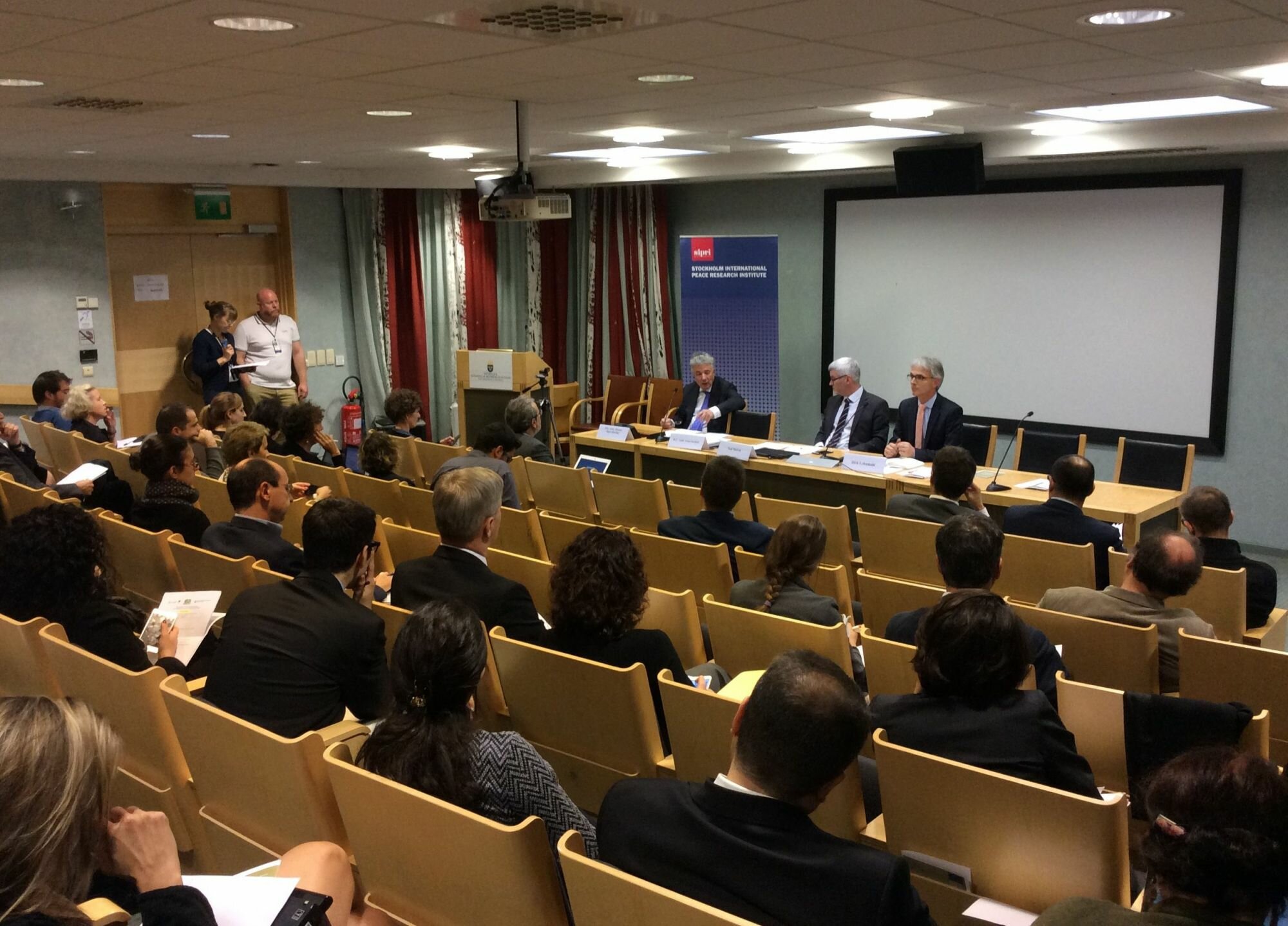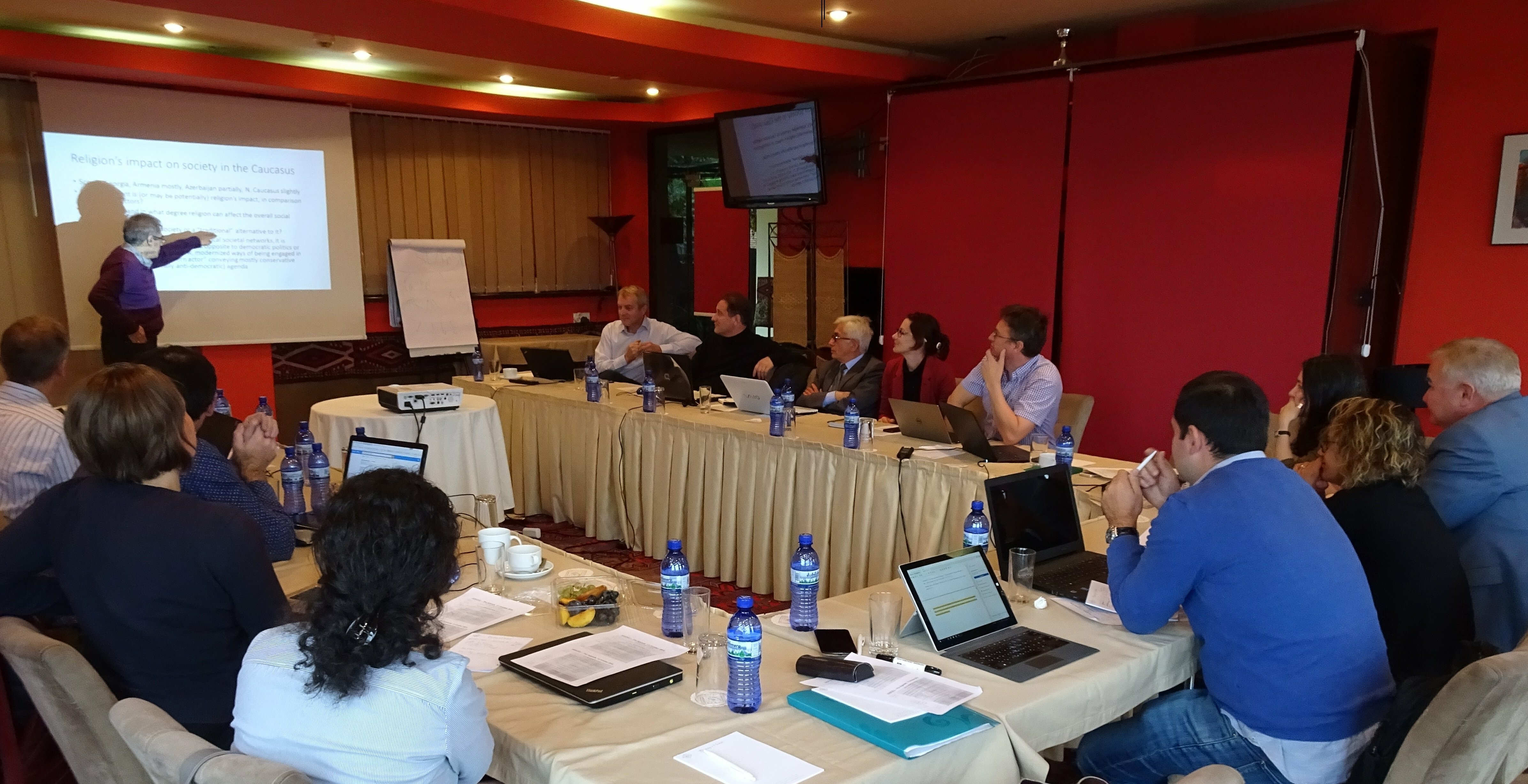In his keynote address H.E. Amb Mayr-Harting (Managing Director, Europe and Central Asia, EEAS) underlined the evolution of the EU's involvement with the region, such that today the EU understands the need of differentiation and building partnerships in different formats and through different tools. He also emphasized that the EU is not pressing any of its partners to choose between EU and other formats and countries (Russia) of cooperation. Amb Mayr-Harting highlighted the risks of the Nagorno-Karabakh conflict for the region, and noted that the EU is assisting the search for a peaceful solution to the conflict by supporting the OSCE Minsk framework.
The panel discussion 'Shifting Challenges of Conflict Management in the Caucasus' explored the dynamics and drivers of conflict. The panel identified three drivers of conflict, including, the increasing disconnect and drifting apart of the societies affected by the conflict; instrumentalization of the conflict as a tool for power preservation by the political elites; Russian policy of selective revisionism: using the conflicts as tools to keep the affected countries in the state of controlled instability; the massive deterioration of international geopolitical context since 2014.
It has been noted that a set of processes have influenced the conflicts of the Caucasus and changed their nature. First, conflicts that were primarily local and driven by local grievances around inter-ethnic issues and struggle for resources in the immediate post-soviet period have been transformed into fundamentally inter-state conflicts. Second, conflicts themselves have become regionalized. Third, Russia's influence has evolved in all conflicts of the regions, to the extent that they have become an integral part of Moscow's foreign and security policy in the region. But, at the same time, the conflicts themselves have also reshaped the Russian state in the direction of a highly securitized institution. Fourth, the most dangerous tendency is integration of the Caucasus security dynamics into the security of other regions, particularly the Middle East and Black Sea regions.
The panel also considered the emerging influence of Iran in the South Caucasus. It was suggested that with the end of sanctions on Iran this year, the country's economic, political and social influence will begin to recover in the region. Economically, Iran is becoming more deeply engaged in the markets and regional infrastructure projects of the South Caucasus. Although, Iran does not play a major role in conflict resolution, Iran was in active consultation with the Armenian and Azerbaijani governments during the escalation of violence around Nagorno-Karabakh in April 2016.
The panel 'The Issue of Migration in EU-Caucasus Relations' explored the changes and differences of remittances of labor migrant in Russia and their role in local economies. Speakers compared the difference of diaspora activities for South Caucasus communities based in Europe and Russia, and their influence on the local politics in Caucasus countries. The panel identified several new migration trends from Georgia, including, the feminization of migration, shifts in migration destinations (with Spain and Turkey emerging as new destinations supplanting Greece), notably for female migrants. The panel has also discussed the influence and advantages of the EU Mobility Partnership for Georgia, noting that while the format is one of the most optimal, the Georgian government is yet to take the full advantage of it.
Text provided by Ekaterina Klimenko, SIPRI


